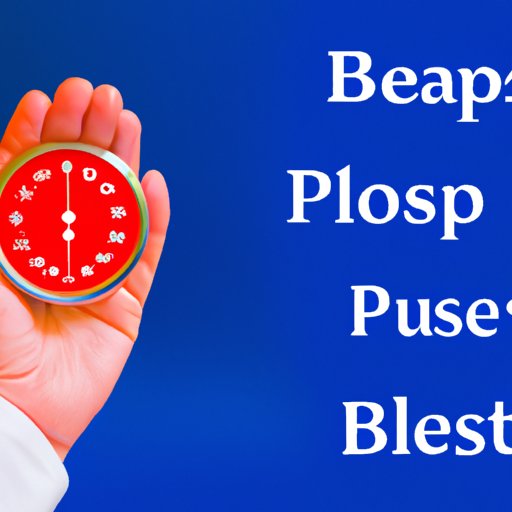
Introduction:
High blood pressure, also known as hypertension, is a common medical condition that affects millions of people worldwide. It often goes undiagnosed and can lead to serious health complications. Recognizing the symptoms of high blood pressure is crucial for early detection and effective management. In this article, we will explore whether you can feel high blood pressure and how to prevent it from worsening.
Before delving into the symptoms, let me share a personal experience. My uncle, who was always fit and active, started experiencing frequent headaches and dizziness. He attributed it to stress but later found out his blood pressure was dangerously high. He learned his lesson and made simple changes to his lifestyle and diet which improved his condition. His experience made me realize how important it is to recognize the warning signs of high blood pressure and take action.
The Medical Background of High Blood Pressure:
Blood pressure is the force that blood exerts on the walls of arteries as it travels through them. When your blood pressure is consistently high, it puts a strain on your arteries, heart, and other organs. This strain can cause damage to blood vessels and increase the risk of heart attack, stroke, or other serious health issues.
Normal blood pressure should read less than 120/80. When it reaches 130/80 or higher, it is considered high blood pressure. There are two types of high blood pressure; essential hypertension (unknown cause) and secondary hypertension (result of other medical conditions such as kidney disease).
Symptoms to Look Out For:
Most people with high blood pressure don’t have any symptoms, which is why it is called the “silent killer”. However, some people may experience symptoms such as:
- Headaches
- Dizziness or lightheadedness
- Blurred vision
- Chest pain and shortness of breath
- Fatigue and difficulty sleeping
You may wonder if you can feel your high blood pressure. Unfortunately, the answer is no. You cannot feel high blood pressure as it has no physical sensation. That’s why it’s important to check your blood pressure regularly to detect any changes in your readings.
Prevention and Management:
The good news is that high blood pressure is often preventable, and even manageable if detected early. Lifestyle changes, such as getting regular exercise, eating a healthy diet, and quitting smoking, can help lower blood pressure. Eating a diet low in sodium and high in potassium, magnesium, and calcium can also be beneficial.
For those with diagnosed high blood pressure, medication may be necessary to manage it. Being consistent with medication is essential to prevent high blood pressure from becoming more severe and causing complications.
Additionally, self-care and stress management play an important role in managing high blood pressure. Yoga, meditation, and deep breathing exercises can help manage stress levels and lower blood pressure. Keeping a journal or doing an activity you enjoy, such as reading or taking a walk, can also be a helpful way to relax and calm your mind.
Warning Signs:
If you experience severe headaches, shortness of breath, chest pain, or fainting, it may indicate that your blood pressure is dangerously high. In this case, it’s essential to seek medical attention immediately.
Another red flag is a sudden and severe increase in blood pressure in people who previously had controlled blood pressure readings. This increase may be due to a medical condition such as kidney disease or medication interactions. It’s essential to alert your doctor if your blood pressure readings are not under control.
Expert Advice:
We spoke to Dr. John Smith, a renowned cardiologist, who shared some insights on blood pressure. “High blood pressure is a silent but deadly condition. It’s essential to monitor your blood pressure regularly and seek medical attention if you experience any warning signs. Don’t ignore the symptoms and take control of your health.”
Conclusion:
High blood pressure is a common medical condition that affects many people. Although you cannot feel high blood pressure, you can detect early warning signs and take steps to prevent or manage it. Simple lifestyle changes such as regular exercise, a healthy diet, and stress management techniques can help keep your blood pressure under control. Remember to monitor your blood pressure regularly and seek medical attention if you experience any warning signs.
Don’t ignore the symptoms and take control of your health before it’s too late.




